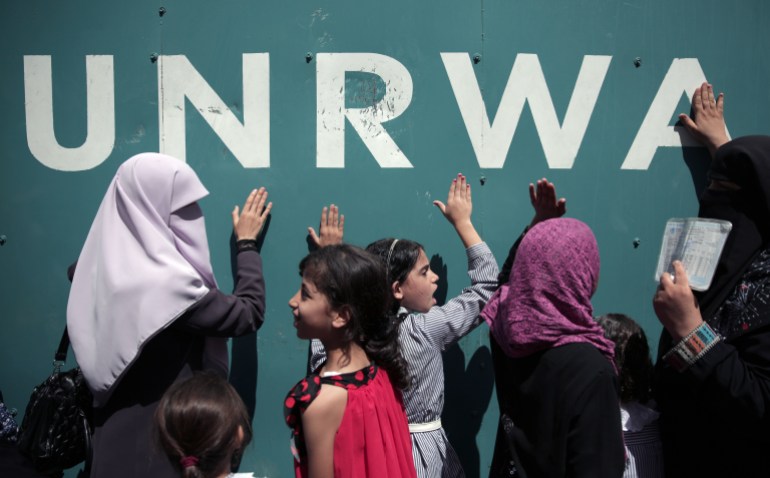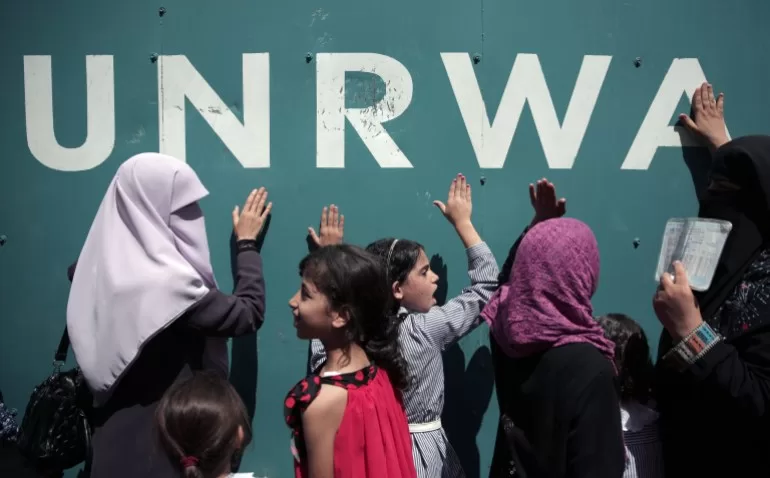United Nations Secretary-General Antonio Guterres says the Security Council is an “outdated,” “unfair” and “ineffective system” whose failure to put an end to Israel’s war on Gaza has damaged the credibility of the organisation as a whole.
Speaking to Al Jazeera Arabic in an exclusive interview, the UN chief decried the failures of the council, which was established in the aftermath of World War II to ensure international peace and security but whose permanent members’ veto power has consistently proven to be an obstacle to that goal.
The council, Guterres said, “doesn’t correspond to the world of today”.
“The truth is that the Security Council has systematically failed in relation to the capacity to put an end to the most dramatic conflicts that we face today: Sudan, Gaza, Ukraine.”
‘A severe handicap’
Guterres, a former prime minister of Portugal who has helmed the UN since 2017, stressed that the organisation’s other bodies and particularly its humanitarian agencies have continued to deliver essential services to Palestinians throughout Israel’s more than 11-month assault on Gaza. But he noted that the council’s political failure to bring an end to the conflict has hurt the UN’s other bodies.
“The UN is not the Security Council,” Guterres said. But he acknowledged that UN staff in the field — and particularly those from the UN Relief and Works Agency for Palestine Refugees (UNRWA) in Gaza — “suffer from the fact that the people look at them and think, ‘Well, but the Security Council has failed us.’”
“For us, this failure of the Security Council is a severe handicap for our work in the field,” he added.

‘UNRWA remains the backbone’
Guterres nodded to the 200 UNRWA staff killed by Israeli forces in Gaza since the beginning of the war and pointed to a recent survey showing recognition for the agency’s efforts among the Palestinians it is reaching. He also expressed relief that after the agency came under attack early this year when Israel accused members of its staff of links to “terrorism“, leading several countries to withhold funding, the agency’s credibility appeared to have been restored.
“Many countries that in the beginning hesitated and suspended the support to UNRWA have come back, helping UNRWA deliver,” he said. “UNRWA remains the backbone of humanitarian support to the people of Gaza.”
Still, he condemned the constant challenges Israel continues to pose to that work.
“When conditions are made for them to work, like in relation to polio, they immediately are very effective,” Guterres said. “If the same conditions would be given to our support in relation to all other aspects of humanitarian action, if we hadn’t had the obstacles, the harassment, the problems, the difficulties that Israel has been systematically creating to the acts of UN humanitarian agencies, in particular to UNRWA, we’ll be able to do much more. And the people do need much more.”
‘No accountability’
In the interview, Guterres also blamed the world’s “major powers” for fostering the culture of impunity on display in Gaza.
Even as he expressed confidence in the work of the International Court of Justice and International Criminal Court, Guterres said, “We live in an environment of total impunity.”
“Everybody does what everybody wants,” he added. “The geopolitical divide that exists among the major powers has created a situation in which any country or any movement anywhere in the world feels that they can do whatever they want because there will be no punishment, there will be no accountability.”
He also said the United States should put more pressure on Israel to end its assault on Gaza.
“It’s important to put pressure on the United States in order to make sure that the United States puts pressure on Israel — as they are supporting Israel — put pressure on Israel to stop the war and at the same time to recognise that the two-state solution must not be undermined.”
“We have been asking the United States to be much more strong in relation to Israel,” he added.
‘The occupation is not legal’
Guterres also discussed the ongoing expansion of Israeli settlements and outposts in the occupied West Bank, which are illegal under international law.
“We must absolutely reject any prospective annexation of the West Bank,” he said. “The West Bank, together with Gaza and East Jerusalem, which is part of the West Bank, must be the state of Palestine in the future.”
“One of the most concerning things we have at the present moment is to see the systematic policy of many in the Israeli government that try to undermine the two-state solution, exactly by evictions, settlements, grabbing land and other actions in the West Bank, which are, of course, totally against international law,” he added.
“There is an opinion of the International Court of Justice. The opinion is clear: This is an occupation, and the occupation is not legal.”
